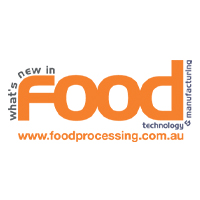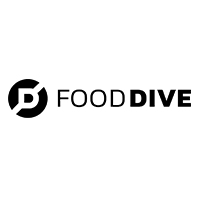When Perfect Bar introduced it’s refrigerated snack bar in 2005, the company’s co-founder and COO Leigh Keith thought the new product might not succeed. “In 2005, walking into a Whole Foods or into a grocery store, it was like, ‘Oh heck no! This just doesn’t exist,’” Keith said in a Project Nosh article.

However, a 30-day test period in five Whole Foods stores, supported with daily samplings, led to good sales and set the stage for “strategic, regional growth.” Now, Perfect Bar sells 12 full-size bars and two mini-bars in 12,000 stores across the US.
As consumer preference for fresh food has increased and the trend toward fresh snacking grows, other companies have joined Perfect Bar in the refrigerated snack bar category.
Nomi (formerly Fresh Bar) launched its bars in 2012. Co-founder and personal trainer Ross Pomeroy experimented in his kitchen to develop an energy bar that wasn’t “dry, crumbly, and dissatisfying.” Today Nomi offers six flavors of refrigerated snack bars made with gluten free oats. The Minnesota-based company sells the bars in about 400 locations, mostly in 15 Midwestern states. Suggested retail price for a single bar is US$1.99.
Like Nomi, OHi Superfood Bar (formerly bRAW) grew out of the desires of a founder. Dawn Anderson wanted “to develop a clean, whole food, delicious tasting bar that would leave her feeling nourished and satisfied.” The company uses non GMO whole food ingredients for bars that contain no gluten, grain, dairy, soy, gums, fillers, synthetic vitamins, or additives. Flavors include Almond Crunch, Coconut Macadamia, Double Chocolate, and Super Green. The bars are available online by the box and in a limited number of stores with a suggested retail price of US$3.49 to $3.99 per bar.

Another refrigerated bar company is Wella Bar, which makes organic nut-based protein bars. “WellaBars are refrigerated to uphold the integrity of our nut butters and the intricacy of our taste… Like natural peanut butter, our bars get oily out of refrigeration.”
Established companies have also introduced refrigerated bars. Nuttzo, a maker of nut and seed butters, entered the market in January 2018 with Bold BiteZ. The first two bars, Power Fuel + Collagen and Peanut Pro + Collagen, are made with grass-fed collagen and pea protein and contain cacao nibs and rice crisps for texture. The bars retail nationwide for US$2.59 to $2.99.
Next, the company introduced two vegan bars: Vegan Power Fuel Maple + Matcha and Vegan Peanut Pro Cacao Nibs + Probiotics. NuttZo’s CEO and Owner Danielle Livolsi was “inspired to bring her homemade bars to market after seeing the consumer demand for fresh, convenient and nutritious snacks,” according to a November 28, 2017, Project Nosh article.
PepsiCo got into the market with the February 2018 launch of refrigerated Naked fruit, nut, and veggies snack bars. Naked, a producer of fruit juices and smoothies, wants “to give consumers even more access to the best fruits and vegetables.”
According to an article at Watson, Inc., a supplier to food companies, refrigerated nutrition bars address increasing consumer demand for:
- Snack foods
- Healthy foods
- Protein (especially plant based protein)
- Vegetables
- Fruits
These factors, plus the trend of consumers increasingly shopping the grocery store perimeter and the view that “a refrigerated product signifies a fresh product,” are supporting the rise of refrigerated bars.
All Innova Market Insights material is copyrighted. The terms of use for this resource are contained in our standard Terms and Conditions.









